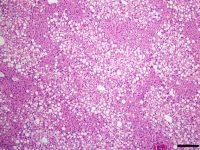Innate Immunity of Digestive Tract and Liver Diseases
R&D > Laboratories > Innate Immunity of Digestive Tract and Liver Diseases

Our Vision
Phagocytic type of innate immune cells, such as macrophages and dendritic cells, play key tissue-specific homeostatic roles in organs of the digestive tract. Yet, they also fuel the pathological inflammatory sequence of digestive tract diseases, while preserving the potential to facilitate recovery. Our group strives to decipher the cell-specific immunoregulatory mechanisms that dictate the pathological versus restorative behavior of these innate immune cells in health and disease. We study the involvement of these cells in diseases of the digestive tract and metabolic syndrome, such as: colorectal cancer, hepatocellular carcinoma, liver fibrosis, non-alcoholic steatohepatitis (NASH), obesity-induced type 2 diabetes, and inflammatory bowel diseases (IBD). We combine state-of-the-art in vivo transgenic mouse models with human patient samples and apply advanced immunological, genetic, molecular and imaging approaches. Our studies have greatly contributed to the field of gut and liver immunology with the functional definition of phagocyte subsets in these organs and their involvement in the respective diseases. We believe that mechanistic insights derived from our research would enable the design of more sophisticated cell-specific therapeutic approaches.

Contact Us
Primary Investigators

Prof. Chen Varol
• Director of the Research Center for
Digestive Tract & Liver Diseases
• Associate Professor, Department of Clinical Microbiology & Immunology,
Faculty of Medicine Tel-Aviv University, Tel-Aviv, Israel
Phone: +972-3-6974226
+972-52-7360325
Email: chenv@tlvmc.gov.il
Address
Sourasky building
1st floor ,Above gate 6
Sourasky Medical Center,
Weizmann 6 st’, 64239
Tel-Aviv, Israel

Research
The ECM is merely being a scaffold for cells in tissues, and is actively involved in the initiation, progression, but also resolution of various diseases. The interplay between immune cells and the ECM dictates disease fates. Biochemical and mechanical cues embedded within the ECM modulate immune cell trafficking, function and survival, and reciprocally, the immune cells express various ECM enzymes and core proteins that shape its composition and structure. In our lab, we study the pathological interplay between innate immune cells and ECM in several diseases, such as liver fibrosis, IBD and cancer. We have shown that tumor associated macrophages play important role in the buildup of tumorigenic collagenous matrix in colorectal cancer (Afik, J Exp Med, 2016). In another study, we have shown that the collagen crosslinker LOXL2 goes up during liver fibrosis, and its inhibition paves the way for scar-degrading macrophages expressing different matrix metalloproteases (Klepfish, Front Immunology, 2020). These days, we study the contribution of immune versus tumor cell derived ADAM8 in the development of hepatocellular carcinoma and colorectal cancer as well as metabolic liver disease and IBD. ADAM8 is upregulated in many diseases, always with correlation to poor clinical prognosis. We have developed conditional transgenic ADAM8-knockout mice to study its cell specific biology in these diseases.
As macrophages promote the pathological sequence of many diseases, but also carry the potential to facilitate recovery, there is a great need for delineating the immune regulators controlling their behavior. Studies in our lab have recently uncovered such a key player – COMMD10. We have shown that it plays an important role in restraining inflammasome activation in Ly6Chi monocytes in experimental models of sepsis and colitis (Mouhadeb, Front Immunology, 2017). We also uncovered an important role for COMMD10 in facilitating phagolysosomal biogenesis and maturation in liver Kupffer cells, being essential for timely clearance of staphylococcal aureus infection (Ben Shlomo, iScience, 2018). These days, we study the role COMMD10 plays in different macrophage subsets of the liver and hepatocytes during drug-induced liver injury, the metabolically diseased liver (NASH) and hepatocellular carcinoma. Our emerging results outline COMMD10 as a fundamental factor in maintenance of tissue-resident macrophages and also in regulation of monocyte differentiation and inflammatory behavior under these pathologies. |
Integrated immunometabolic responses couple dietary intake, energy utilization, and storage to immune regulation of tissue function, and are therefore essential for the maintenance and restoration of homeostasis. Our group has being studying the immunoregulatory properties of an incretin hormone produced in the gut in response to food intake – the glucose-dependent insulinotropic polypeptide (GIP). We have discovered a direct immunoregulatory role for GIP in myeloid immune cells critical for controlling inflammation and body weight. In contrast to the overall metabolic protection of mice with global germline inactivation of the GIP receptor (GIPR), mice with immune cell-targeted GIPR-deficiency display greater weight gain during high-fat-diet (HFD)-induced obesity, despite similar food intake, concomitantly with increased insulin resistance and hepatic steatosis (Mantelmacher, Nature Metabolism, 2019; Efimova, Front Immunology, 2021).
We currently use GIPR-reporter mice and conditional knockout mice to identify the repertoire of immune cells expressing the GIPR and its effect on their immunometabolic activity.
Gallery
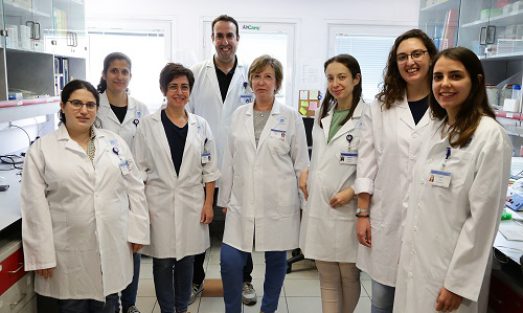
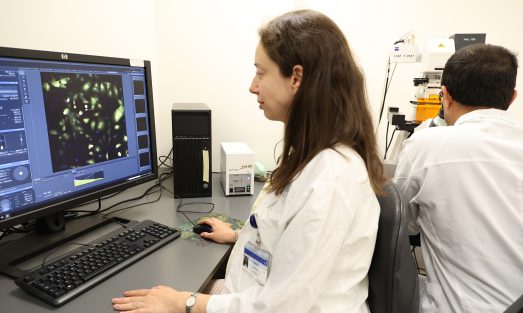
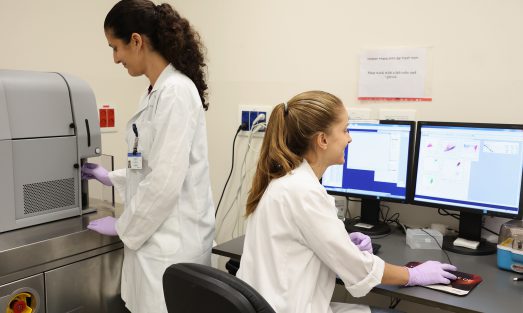
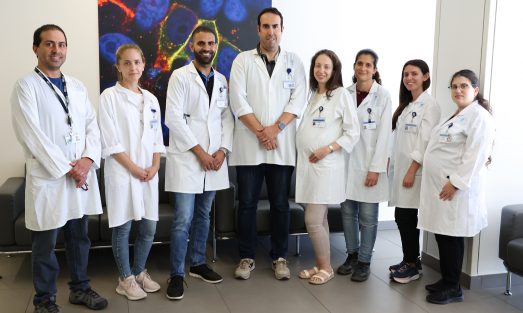
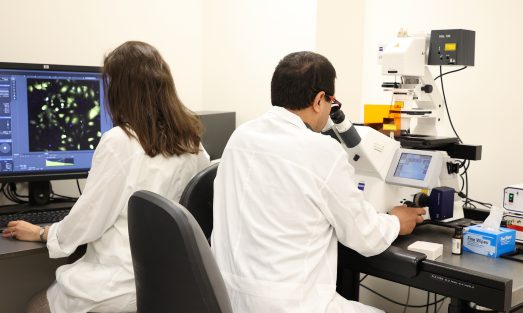
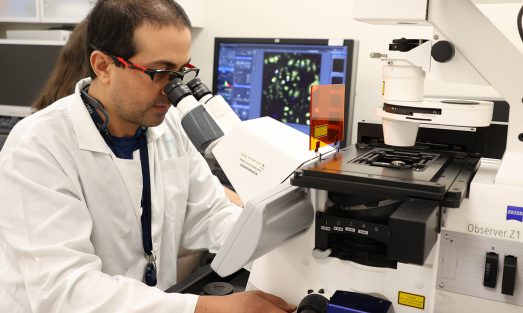
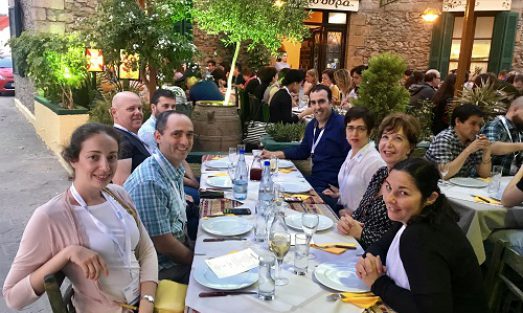
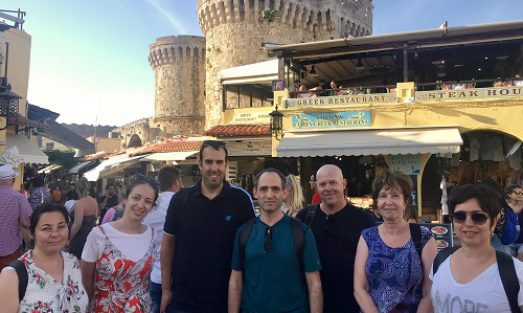
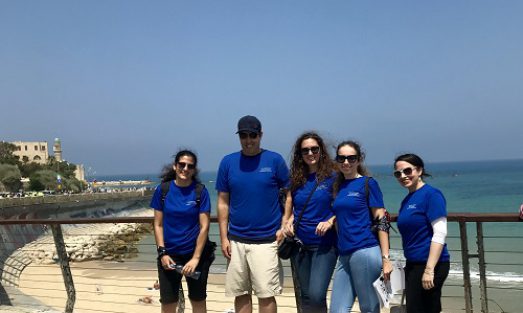

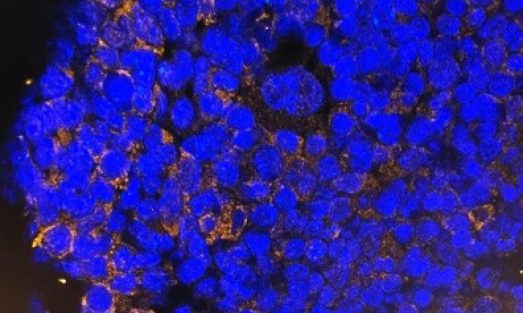
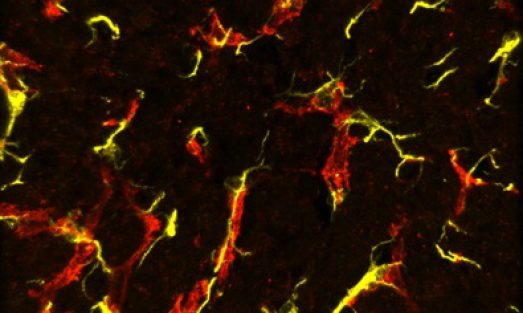
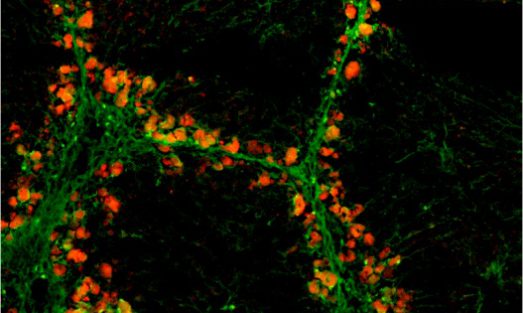

Our Team
Current Staff
Research associate
- Noam Erez
- Anat Neumann
Students
- Keren Cohen, PhD student
- Dr. Irina Efimova, PhD student
- Dr. Bander Abu Sharkiae , PhD student
- Lilah Margali Grigg, MD/PhD student
- Marva Langer, MSc student
- Yulia Radnabazarov, MSc student
Past Staff
Researchers associate
- Milena Vugman
- Elinor Banai
Students
- Inbar Steinberg, MSc student
- Shani Samia, MSc student
- Odelia Mouhadeb, PhD student
- Dana Fernanda Mantelmacher, PhD student
Basic science project
- Dr. Ory Wissel
- Dr. Goni Katz
- Dr. Inbal Farkash
Postdoc fellow
- Dr. Nadine Graubardt
Current funding




Highlight Publications
Tumor macrophages are pivotal constructors of tumor collagenous matrix. Afik R, Zigmond E, Vugman M, Klepfish M, Shimshoni E, Pasmanik-Chor M, Shenoy A, Bassat E, Halpern Z, Geiger T, Sagi I, Varol C. J Exp Med. 2016 Oct 17;213(11):2315-2331.
GIP regulates inflammation and body weight by restraining myeloid-cell-derived S100A8/A9. Mantelmacher FD, Zvibel I, Cohen K, Epshtein A, Pasmanik-Chor M, Vogl T, Kuperman Y, Weiss S, Drucker DJ, Varol C*, Fishman S*. Nature Metabolism. 2019 Jan;1(1):58-69.
Impaired COMMD10-Mediated Regulation of Ly6Chi Monocyte-Driven Inflammation Disrupts Gut Barrier Function. Mouhadeb O, Ben Shlomo S, Cohen K, Farkash I, Gruber S, Maharshak N, Halpern Z, Burstein E, Gluck N, Varol C. Front Immunol. 2018 Nov 14;9:2623.
More Publications >>
GIPR Signaling in Immune Cells Maintains Metabolically Beneficial Type 2 Immune Responses in the White Fat From Obese Mice. Efimova I, Steinberg I, Zvibel I, Neumann A, Mantelmacher DF, Drucker DJ, Fishman S, Varol C. Front Immunol. 2021 Feb 25;12:643144. |
COMMD10-Guided Phagolysosomal Maturation Promotes Clearance of Staphylococcus aureus in Macrophages. Ben Shlomo S, Mouhadeb O, Cohen K, Varol C, Gluck N. iScience. 2019 Apr 26;14:147-163. |
LOXL2 Inhibition Paves the Way for Macrophage-Mediated Collagen Degradation in Liver Fibrosis. Klepfish M, Gross T, Vugman M, Afratis NA, Havusha-Laufer S, Brazowski E, Solomonov I, Varol C*, Sagi I*. Front Immunol. 2020 Mar 31;11:480. |
Ly6Chi Monocytes and Their Macrophage Descendants Regulate Neutrophil Function and Clearance in Acetaminophen-Induced Liver Injury. Graubardt N, Vugman M, Mouhadeb O, Caliari G, Pasmanik-Chor M, Reuveni D, Zigmond E, Brazowski E, David E, Chappell-Maor L, Jung S, Varol C. Front Immunol. 2017 Jun 1;8:626. |
Infiltrating monocyte-derived macrophages and resident kupffer cells display different ontogeny and functions in acute liver injury. Zigmond E, Samia-Grinberg S, Pasmanik-Chor M, Brazowski E, Shibolet O, Halpern Z, Varol C. J Immunol. 2014 Jul 1;193(1):344-53.
Long-acting glucose-dependent insulinotropic polypeptide ameliorates obesity-induced adipose tissue inflammation. Varol C, Zvibel I, Spektor L, Mantelmacher FD, Vugman M, Thurm T, Khatib M, Elmaliah E, Halpern Z, Fishman S. J Immunol. 2014 Oct 15;193(8):4002-9. |
Ly6C hi monocytes in the inflamed colon give rise to proinflammatory effector cells and migratory antigen-presenting cells. Zigmond E*, Varol C*, Farache J, Elmaliah E, Satpathy AT, Friedlander G, Mack M, Shpigel N, Boneca IG, Murphy KM, Shakhar G, Halpern Z, Jung S. Immunity. 2012 Dec 14;37(6):1076-90.
|




